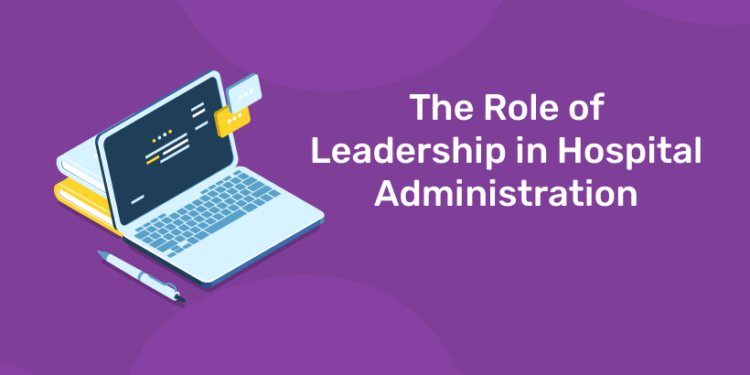Table of Contents
Key Takeaways:
- Strong leadership is essential for quality patient care and hospital success.
- Hospital administrators need a mix of technical and soft skills to thrive.
- Continuous education and professional development are crucial for staying ahead.
- Effective leadership drives innovation, improves communication, and enhances patient experience.
- Networking and mentorship provide valuable support and opportunities for growth.
Introduction
Imagine walking into a hospital where every staff member is motivated, patients feel cared for, and operations run like clockwork. This isn’t just a dream—it’s the reality strong leadership can create in hospital administration. In today’s fast-changing healthcare landscape, effective leadership is the backbone of every successful hospital, ensuring quality care, regulatory compliance, and staff satisfaction.
Leadership in hospital administration isn’t just about managing people and budgets; it’s about inspiring teams, driving innovation, and making a real difference in patient lives. Whether you’re a healthcare professional, an aspiring administrator, or simply curious about how hospitals function, understanding the role of leadership is key to navigating the complexities of modern healthcare.
Why Leadership Matters in Hospital Administration
Leadership in hospital administration is the cornerstone of a well-functioning healthcare system. In 2025, hospitals face unprecedented challenges, including workforce shortages, rising costs, and the rapid adoption of new technologies. Effective leadership is essential for navigating these complexities and ensuring that hospitals continue to deliver high-quality care.
-
Ensuring Quality Patient Care
Leaders set the standard for patient care by fostering a culture of excellence. They implement best practices, monitor performance metrics, and ensure that staff are equipped to meet high standards. According to a 2025 survey, 39% of hospital executives identified maintaining quality patient care as their primary focus, highlighting the critical role of leadership in this area.
-
Navigating Regulatory Compliance
Staying compliant with healthcare regulations is a constant challenge. Leaders must stay informed about changes in laws and ensure that all staff are trained and aware of compliance requirements. Regular audits and proactive measures help hospitals avoid penalties and maintain trust with patients and regulators.
-
Financial Management
Effective financial management is crucial for the sustainability of hospitals. Leaders are responsible for budgeting, cost control, and revenue strategies. In 2025, workforce management costs are a significant financial stressor, with 34% of executives citing recruitment and retention challenges as critical issues. Leaders must balance the need for quality care with financial sustainability.
-
Boosting Staff Morale
A positive work environment is essential for staff retention and morale. Leaders who provide support, resources, and opportunities for professional development can significantly improve staff satisfaction. In 2025, 49% of nurse leaders identified staff recruitment and retention as their top challenge, underscoring the importance of leadership in addressing workforce issues.
Explore Your Future in Hospital Administration! Enroll now
How Effective Leadership Impacts Healthcare Facilities
1: What is the primary role of a hospital administrator?
Effective leadership has a direct and measurable impact on the performance of healthcare facilities. Leaders who focus on innovation, communication, and patient-centered care can drive significant improvements in various areas.
-
Improving Patient Satisfaction and Outcomes
Strong leadership leads to better patient outcomes and higher satisfaction. Leaders who prioritize patient-centered care and implement safety protocols can reduce preventable adverse events by up to 50%, according to a study published in the Journal of Patient Safety. This not only improves patient care but also enhances the hospital’s reputation.
-
Enhancing Operational Efficiency
Leaders who drive operational efficiencies can boost productivity and reduce costs. In 2025, more than 70% of C-suite executives across multiple countries identified improving operational efficiencies as a priority for their organizations. Effective leaders streamline processes, optimize resource allocation, and implement digital transformation initiatives to enhance efficiency.
-
Fostering a Positive Workplace Culture
A positive workplace culture reduces staff burnout and improves retention. Leaders who focus on staff well-being and create a supportive environment can significantly impact staff morale. In 2025, 34% of nurse leaders highlighted the emotional health and well-being of staff as a key challenge, emphasizing the need for leadership in this area.
-
Driving Digital Transformation
Digital transformation is a top priority for healthcare leaders in 2025. Fifty percent of hospital executives identified security and privacy risks as their greatest digital challenge, while 45% cited AI and automation as significant considerations. Leaders who embrace new technologies and drive digital transformation can improve operational resilience and patient outcomes.
-
Addressing Workforce Challenges
Leadership is crucial in addressing workforce challenges such as recruitment, retention, and burnout. In 2025, 46% of healthcare leaders plan to leave their roles within a year, highlighting the need for strategies to improve retention and engagement. Effective leaders implement innovative approaches to manage staffing gaps and leadership shortages.
Also read: Hospital Administration vs Operations Management
Hospital Administration Course with Assured Career Growth
Hospital Administration Course by Entri App: Master essential healthcare management skills, gain certification, and secure top roles in leading hospitals
Join Now!Practical Tips for Developing Leadership Skills
Developing strong leadership skills is a continuous journey, especially in the dynamic field of hospital administration. In 2025, healthcare leaders must be adaptable, empathetic, and forward-thinking to meet the evolving needs of patients, staff, and organizations. Here are practical, evidence-based tips to help aspiring and current hospital administrators grow as effective leaders.
1. Pursue Continuous Education and Training
Staying updated with the latest trends, regulations, and best practices is essential for leadership excellence. Enroll in advanced degrees or certifications such as an MBA in Hospital Administration or specialized healthcare management programs. These courses cover strategic management, financial oversight, policy, and ethical considerations, equipping leaders to navigate complex healthcare environments.
2. Seek Mentorship and Coaching
Mentorship and coaching are invaluable for personal and professional growth. Connect with experienced healthcare leaders to gain insights, share ideas, and receive guidance. Mentorship helps aspiring administrators navigate challenges, build confidence, and shape the next generation of healthcare leaders.
3. Build a Professional Network
Networking with peers and industry experts opens doors to collaboration, learning, and career advancement. Attend conferences, join professional associations, and participate in online forums to exchange knowledge and stay informed about industry trends.
4. Attend Workshops and Conferences
Workshops and conferences provide opportunities to learn from experts, engage in hands-on activities, and stay updated on the latest innovations. These events often feature case studies, panel discussions, and interactive sessions that enhance leadership skills and foster a culture of continuous improvement.
5. Implement Structured Leadership Development Programs
Organizations that invest in structured leadership development programs create a strong pipeline of skilled administrators. These programs may include formal training, action learning, job shadowing, leadership mentoring, job rotation, and soft skills training. Such initiatives help leaders refine their decision-making, communication, and operational management skills.
Explore Your Future in Hospital Administration! Enroll now
6. Foster a Culture of Open Communication
Effective communication is a cornerstone of strong leadership. Use frameworks like the Patient Aligned Care Team (PACT) system, which emphasizes pride, accountability, commitment, and trust. Open communication fosters transparency, mutual respect, and improved staff engagement, leading to better patient care coordination.
7. Encourage Continuous Feedback and Assessment
Regular feedback and assessment are crucial for leadership growth. Use tools like 360-degree feedback to monitor progress and readiness for leadership roles. Continuous feedback helps leaders identify areas for improvement and adapt their strategies to meet organizational goals.
8. Develop Empathetic Leadership
Empathetic leadership focuses on understanding and responding to the emotional needs of patients and staff. Leaders who practice empathy create supportive workplace environments, reduce burnout, and improve patient satisfaction. Implement systems for regular feedback, create safe spaces for open dialogue, and actively address concerns raised by staff and patients.
9. Promote Leadership at All Levels
Successful healthcare organizations cultivate leadership at every level. Invest in leadership training for frontline employees, supervisors, and middle managers to ensure future leaders are prepared for executive roles. Promoting from within creates a culture of loyalty and aligns employees with the organization’s mission.
10. Measure, Adapt, and Improve
For leadership development strategies to succeed, regularly measure progress against set goals. Use key performance indicators (KPIs) to track improvements and adapt strategies as needed. Continuous measurement and adaptation ensure that leadership development initiatives remain relevant and impactful.
People also read: Top Challenges in Hospital Administration and How Software is Solving Them
The Impact of Leadership: Data and Trends
Recent surveys and reports highlight the critical role of leadership in hospital administration. Here’s a snapshot of key statistics and trends:
| Impact Area | Statistic/Outcome |
|---|---|
| Quality Patient Care | 39% of hospital executives cite quality care as their primary focus |
| Workforce Challenges | 34% of executives highlight recruitment and retention as major issues |
| Financial Pressures | 24% of executives cite supply costs as a significant stressor |
| Digital Transformation | 50% of executives prioritize cybersecurity and digital platforms |
| Leadership Retention | 46% of healthcare leaders plan to leave their roles within a year |
These statistics underscore the importance of strong leadership in addressing the challenges hospitals face today.
Entri’s Hospital Administration Course: Your Path to Leadership
Ready to take the next step in your healthcare career? Entri’s Hospital Administration Course is designed to equip you with the skills and knowledge needed to excel in leadership roles. Our comprehensive curriculum covers healthcare management principles, financial management, regulatory compliance, and leadership skills.
Course Features
- Placement Assistance: Benefit from 100% placement assistance, resume building, and mock interviews to help you confidently step into a professional healthcare career.
- Industry-Recognized Certification: Gain a globally recognized certification that boosts your employability.
- Flexible Training Schedules: Choose from flexible schedules to fit your needs.
- Practical Experience: Participate in internships and industrial visits for hands-on learning.
- Expert Faculty: Learn from industry experts who bring real-world insights to the classroom.
Also read: Hospital Operations Management
Hospital Administration Course with Assured Career Growth
Hospital Administration Course by Entri App: Master essential healthcare management skills, gain certification, and secure top roles in leading hospitals
Join Now!Conclusion
Leadership in hospital administration is more important than ever in 2025. By developing the right skills and staying updated with the latest trends, you can make a real difference in healthcare. Enroll in Entri’s Hospital Administration Course today and take the first step toward a rewarding career in hospital leadership.
Hospital Administration Course with Assured Career Growth
Hospital Administration Course by Entri App: Master essential healthcare management skills, gain certification, and secure top roles in leading hospitals
Join Now!Frequently Asked Questions
What is the role of leadership in hospital administration?
Leadership in hospital administration involves setting standards for patient care, ensuring regulatory compliance, managing finances, and fostering a positive work environment. Effective leaders drive innovation, improve communication, and enhance the patient experience.
How does effective leadership impact healthcare facilities?
Effective leadership improves patient care quality, operational efficiency, and staff morale. Leaders who drive innovation, communicate effectively, and focus on patient-centered care can significantly enhance healthcare outcomes and facility performance.
Why is continuous education important for hospital administrators?
Continuous education is vital for staying updated with the latest healthcare trends, regulations, and best practices. It helps administrators develop advanced skills in management, financial oversight, and compliance, leading to more effective leadership.
What strategies can hospital administrators use to develop leadership skills?
Hospital administrators can develop leadership skills through continuous education, mentorship, and networking. Advanced degrees, professional certifications, workshops, and participation in professional organizations are also beneficial.
How can Entri's Hospital and Healthcare Administration Course help?
Entri’s Hospital and Healthcare Administration Course provides comprehensive training in healthcare management principles, financial management, regulatory compliance, and leadership skills. It equips healthcare professionals with the knowledge and skills needed to excel in leadership roles.
What are the key qualities of an effective hospital administrator?
Effective hospital administrators possess strong leadership, communication, and decision-making skills. They are also adept at managing finances, navigating regulatory compliance, and fostering a culture of excellence and innovation within their facilities.
How do hospital administrators ensure regulatory compliance?
Hospital administrators ensure regulatory compliance by staying informed about changes in healthcare laws, training staff on compliance requirements, and conducting regular audits to identify and address potential issues.















